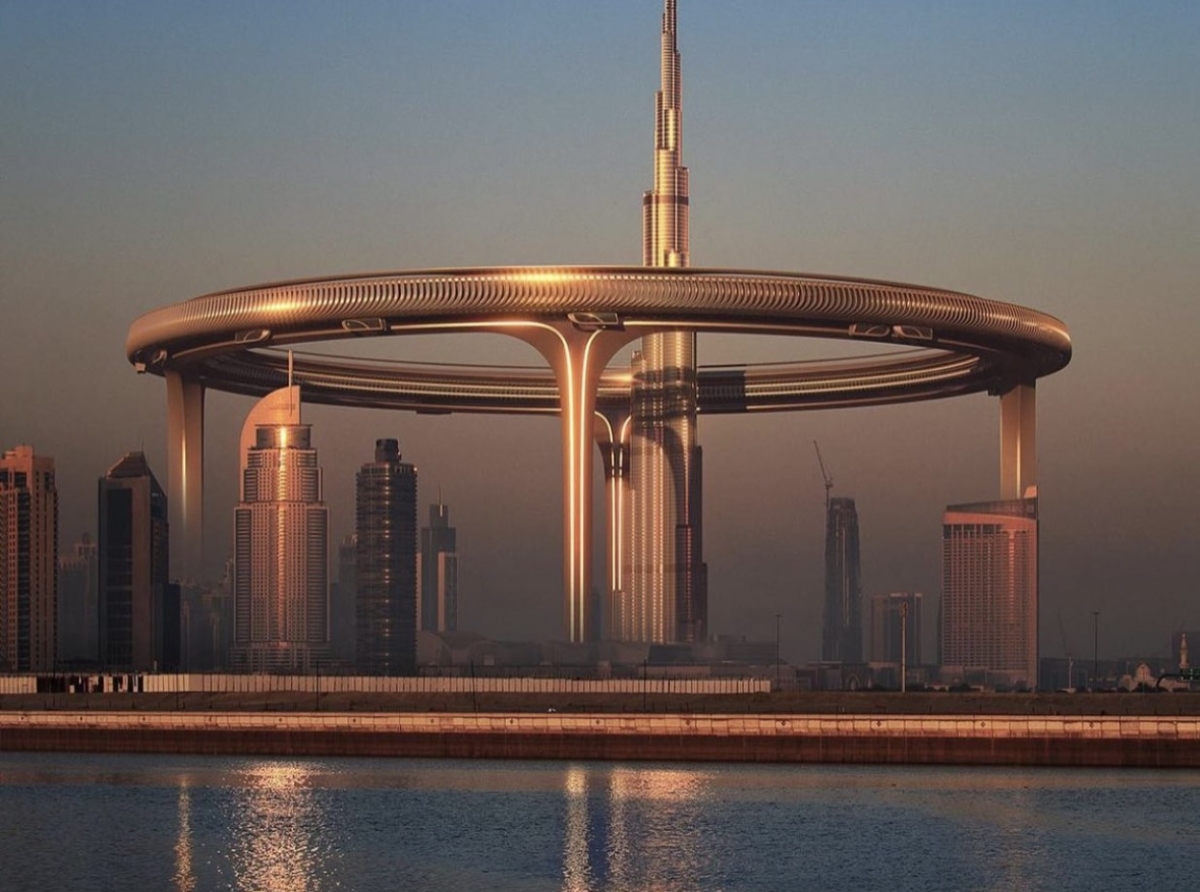Emirates Marks Grand Slam Sponsorship With New A380 Livery
Dubai Chambers held a roadshow in Shenzhen and Guangzhou to deepen cooperation with 18 Chinese entiti... Jan 16, 2026 Dubai Chambers Courts Chinese Trade and Investment Partners

Dubai has long been celebrated for its record-breaking architecture and futuristic skyline. But beyond the skyscrapers and luxury developments lies a deeper, transformative ambition: to become the smartest and most innovative city in the world. Through cutting-edge technologies, data-driven governance, and a citizen-first approach, Dubai is not just preparing for the future—it is actively building it today.
Dubai 10X: A Blueprint for a Decade Ahead
At the core of this transformation is the Dubai 10X initiative, launched in 2017 by His Highness Sheikh Hamdan bin Mohammed bin Rashid Al Maktoum, Crown Prince of Dubai and Chairman of the Executive Council. The program challenges government entities to implement today what other cities might only consider ten years from now. The goal is to "disrupt" traditional services and business models through bold, forward-thinking ideas.
One example is the Dubai Courts' digital litigation system, which uses AI and blockchain to streamline case handling, reducing human error and expediting judicial processes. Another is the Dubai Health Authority’s Doctor for Every Citizen initiative, which uses telemedicine platforms powered by AI to offer 24/7 consultations for residents.
Dubai Paperless Strategy: A Greener Government
Launched in 2018 by the Dubai Digital Authority, the Dubai Paperless Strategy aims to eliminate all paper transactions from government entities. As of 2024, the initiative has succeeded in removing over 336 million paper documents, saving more than 14 million work hours and 1.6 billion AED in costs, according to official data released by Smart Dubai.
Government entities such as Dubai Police, Dubai Electricity and Water Authority (DEWA), and Roads and Transport Authority (RTA) are now fully paperless. Through smart apps and integrated platforms, residents can access hundreds of public services without printing a single page—dramatically reducing carbon emissions and improving administrative efficiency.
AI Integration: Intelligence Across Every Sector
In 2023, Dubai unveiled its Artificial Intelligence Roadmap, further advancing the goals of the UAE National Strategy for Artificial Intelligence 2031. The roadmap outlines a vision for incorporating AI across essential sectors such as transport, education, energy, and public safety.
The Dubai Metro, operated by the RTA, already features driverless trains, which are fully automated and monitored by smart systems. The RTA is also piloting autonomous taxis in partnership with Cruise (a GM-backed company), aiming for full deployment by 2030, when 25% of all transportation in Dubai is expected to be autonomous.
In healthcare, Dubai's AI strategy supports early diagnosis and predictive healthcare models. Hospitals under Dubai Health Authority have begun implementing AI algorithms for radiology scans, improving both speed and accuracy in diagnostics. Similarly, AI-powered surveillance systems are used by Dubai Police to enhance public safety and optimize emergency response times.
Blockchain and Big Data: Building Trust Through Technology
Dubai is also pioneering the use of blockchain in government. Through the Dubai Blockchain Strategy, the city aims to become the first blockchain-powered government in the world. Over 24 government departments have already adopted blockchain-based solutions for identity verification, property transactions, and supply chain transparency.
Meanwhile, the Smart Dubai platform, powered by Dubai Pulse, acts as the central data repository for the city. This open-data initiative allows government departments and private enterprises to access, analyze, and share real-time urban data to enhance decision-making and improve quality of life for residents.
Smart Living: Everyday Innovation for Everyone
For Dubai residents, the impact of the smart city strategy is tangible. The DubaiNow app integrates over 130 government and private services in a single interface—from paying bills to renewing vehicle registration and reporting public issues. The Happiness Meter, one of the world’s first city-wide sentiment measurement tools, allows residents to rate their satisfaction in real time, giving feedback directly to service providers.
Moreover, the city has embraced the Internet of Things (IoT) with thousands of smart sensors embedded across infrastructure—from street lighting to waste management. This enhances operational efficiency and aligns with Dubai's sustainability goals under the Dubai Clean Energy Strategy 2050.
Smart City
Dubai's Smart City vision is more than a series of high-tech upgrades—it is a holistic, citizen-centric strategy rooted in sustainable innovation, digital transformation, and global leadership. By harnessing AI, blockchain, big data, and automation, Dubai is not just racing toward the future—it is setting the pace for the world to follow.
Photo credits: Dubai Instagram.
Disclosure: Dubai Voice enhances the editing process with the help of carefully selected AI tools. These tools provide valuable support without taking over the editing process completely, ensuring that the final product is the result of human creativity and expertise augmented by the benefits of enhanced technology. This article is protected under the copyright of Dubai Voice. Unauthorized reprinting, republishing, or rewriting of this content is strictly prohibited without explicit permission from Dubai Voice. Quotations from this material are permissible provided that a direct link to the full article on Dubai Voice is included.